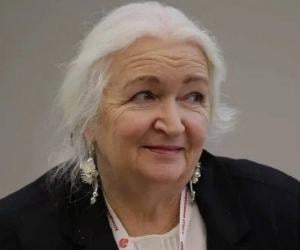


May-Britt Moser is a Norwegian neuroscientist and psychologist. She also serves as a professor at the Norwegian University of Science and Technology. She is best known for winning the Nobel Prize in Medicine in 2014 for her work pertaining to the grid cells in the brain's entorhinal cortex. She shared the award with her then-husband, Edvard Moser.

Considered a pioneer in her field, centenarian neuropsychologist Brenda Milner is known for her immense contribution to clinical neuropsychology. Especially known for her work on memory and cognition, she has contributed immensely to the study of temporal lobe. Her papers on the frontal lobes in problem-solving and the lateralization of hemispheric function in language are also highly regarded by scholars.

Apart from being a successful scientist with a focus on neurodegenerative diseases such as Parkinson's disease and Alzheimer's disease, Susan Greenfield teaches pharmacology at the Lincoln College, Oxford. She is also part of the House of Lords and has penned a sci-fi novel. She supports causes such as Dignity in Dying, too.

Irish neuroscientist and UCL professor Eleanor Maguire is best known for her work on the role of the human brain, especially the hippocampus. One of her best-known works was on the spatial abilities of cab drivers in London. She has been named a Fellow of the Royal Society and of the British Academy.







Michal Schwartz is an Israeli neuroimmunologist who is currently a professor of neuroimmunology at the Weizmann Institute of Science. She also holds the Ilse Katz Professorial Chair in Neuroimmunology. Her works helped to expand the field of immunology in neuroscience, and she discovered new roles for immune cells in neurogenesis.


